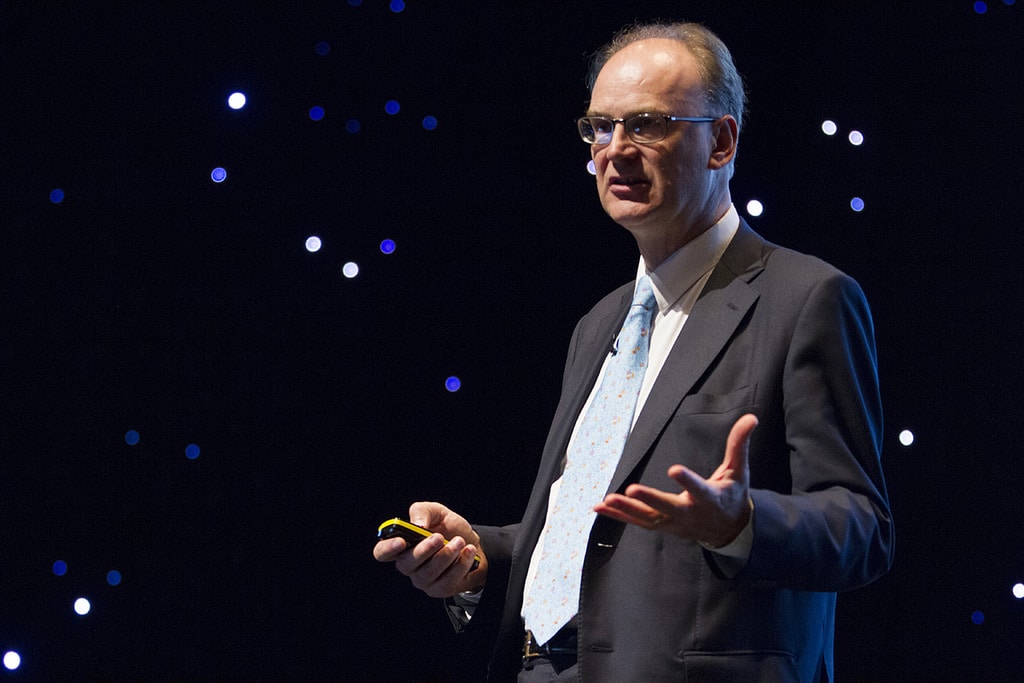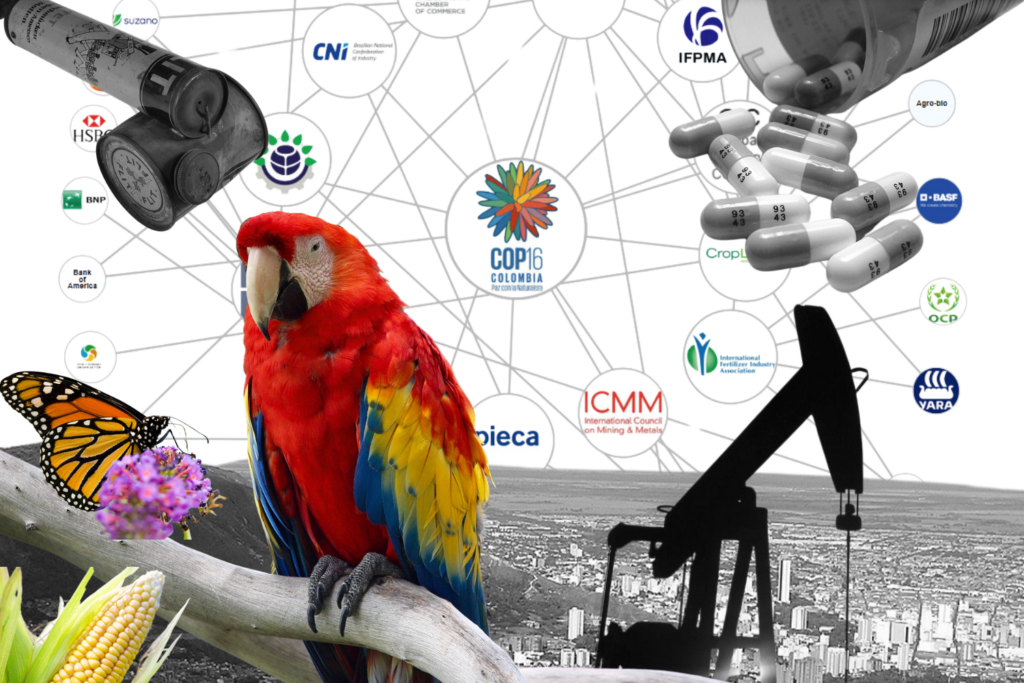The Royal Society is coming under internal pressure to cancel a booking on its premises made by climate science “sceptic” group the Global Warming Policy Foundation, DeSmogUK can reveal.
Several fellows and associates of the society – the world’s oldest scientific academy, founded in 1660 – are angry over an agreement to hire its premises to the GWPF for its 17 October annual lecture, to be delivered by Lord Matt Ridley.
DeSmogUK also understands some scientists intend to raise the issue at a meeting of the Royal Society’s governing council on 6 October, with a request to cancel the GWPF booking.
The GWPF, founded by former chancellor and Conservative peer Lord Nigel Lawson, was forced to split its operations in 2014 after a Charity Commission report found its materials lacked balance and “promoted a particular position on global warming.”
Professor Andrew Watson, a Royal Society Fellow and Royal Society Research Professor at the University of Exeter, who is not on the council, told DeSmogUK: “I expect the RS agreed to this because they didn’t want to be accused of censorship, but the GWPF is not just interested in hiring a lecture theatre — they are also hiring the brand.”
Professor Andrea Sella, the 2014 winner of the Royal Society’s Michael Faraday prize for communicating science, told DeSmogUK: “I feel that the Royal Society’s decision to allow the GWPF to hold their meeting on their premises is, let us say, ill-advised, and represents an error of judgement.”
He said providing space for the lecture risked lending credibility to those views, adding: “If we have learned anything from recent politics it is that it is not what you say, but the impression you present that often matters most strongly in causing people to form conclusions.”
Bob Ward, policy and communications director at the London School of Economics’ Grantham Research Institute on Climate Change and the Environment, said: “I hope the Council of the Royal Society will recognise the enormous damage that hosting a pseudoscientific event like this does to the international reputation of the UK national academy of science.”
Ward — a long-standing and active critic of the GWPF — worked in policy communication at the society between 1999 and 2006, but has no current formal connections.
He said the GWPF was the “antithesis” of the society’s motto, meaning “take nobody’s word for it”.
Ward added: “It is the equivalent of accepting money from other pseudoscientific groups, such as the astrologers and homeopaths. I think most of the scientific community will be disappointed that the Royal Society is providing a platform for the hereditary peer, Viscount Ridley, to misrepresent the scientific evidence for the risks of climate change.”
News of the GWPF booking emerged after NewScientist journalist Michael Le Page wrote a scathing column, criticising the society for giving GWPF a “veneer of respectability”.
The Royal Society has released a statement, saying the GWPF is just one of many organisations hiring space at the society’s London HQ, and this did not mean the society endorsed the views of those groups.
“The Society has a strong track record of opposing those who cherry pick or misrepresent evidence when it comes to the science of climate change and indeed we have had robust disagreements with the GWPF in the past,” the statement said.
A Royal Society spokesperson pointed DeSmogUK to a section of its terms and conditions for room hire that state that advertising and publicity material for events should “not imply that the Event is endorsed or organised by The Royal Society.”
Any use of Royal Society logos in publicity also needed prior written consent, the spokesman added.
The society’s terms and conditions for room hire also say venue applications will be accepted “only if the nature of the function is considered appropriate by The Royal Society and in sympathy with the ethos of the Royal Society and that the function is to promote science, technology, education or scholarship.”
DeSmogUK understands that several representations have been made to members of the Royal Society over the booking.
There are concerns any attempts by the society to distance itself from the views of the GWPF will not be enough to remove potential damage to its reputation.
The Royal Society has also said that the GWPF event will not focus on science, but will instead focus on policy issues – a valid area for debate.
But one society associate told DeSmogUK: “How can policy be discussed if the organisers do not accept the scientific evidence? There is a very real risk that this could undermine the RS‘s goal to promote evidence-based decision making.”
DeSmogUK asked GWPF director Benny Peiser to respond to the concerns being raised and the questions over it’s hiring of the venue. His response, in full, read: “This will not be the first time the GWPF has held its annual lecture at the Royal Society.”
Peiser was referring to the 2012 GWPF lecture from German Professor Fritz Vahrenholt where the chemist dismissed the role of CO2 in climate change, said the “climate catastrophe will not occur” and predicted the world would experience “slight cooling” for the next few decades. The years 2014 and 2015 both broke records for the hottest year, with 2016 likely to follow.
Vahrenholt also dismissed chances of developing countries like China and India from joining a global agreement to limit greenhouse gas emissions. Since then, more than 190 countries signed the Paris agreement – including the countries Vahrenholt thought would not sign any deal.
GWPF Attacks Royal Society
Last year, the GWPF produced a report accusing the Royal Society of giving a “misleading picture” on the science of climate change.
Former society president Sir Paul Nurse, who is not on the council but has been critical of the GWPF in the past, told DeSmogUK the society “encourages open debate on scientific issues” and so he believed the GWPF event was “appropriate.”
The 2015 GWPF annual lecture was given by Canadian Patrick Moore, who claims there is “no scientific proof” that humans are causing climate change.
Moore asked the audience to “celebrate CO2” – the same line Moore delivered in his coal-industry sponsored talk to EU officials and MEPs earlier this year.
In November 2015, an article by Ridley and GWPF’s director Benny Peiser, published in the Wall St. Journal, claimed to offer “your complete guide to the climate debate”.
In the article, Ridley and Peiser said the Earth had been warmer in the recent past, that the planet’s atmosphere was not as sensitive to CO2 warming as previously feared, and that future warming might be beneficial.
Ridley Accused of Misrepresenting Science
The article was analysed by scientists for Climate Feedback – a group established to offer expert reviews of media articles on climate science – and was found to have “low to very low” scientific credibility.
One of those who analysed the article, Professor Steven Sherwood, of the University of New South Wales, said the column “peddles the usual false statements masquerading as opinion that we have been seeing for years” and that it “would not be published by a reputable publisher.”
“Most of the scientific statements in the article are false or misleading,” concluded Sherwood.
In October last year, Ridley’s Northumberland family estate, home to a coal mine, was blockaded by protesters.
In December last year, several leading scientists, including NASA‘s Dr Gavin Schmidt, analysed a wide-ranging interview given by Ridley to the BBC. The scientists accused Ridley of numerous errors and misrepresentations.
In an article written for The Times, Ridley made several claims about the “benefits” of carbon dioxide, including that it was helping to “green” the planet.
Ridley cited provisional work by Professor Ranga Myneni, of Boston University, that had found evidence that some plants were increasing their leaf cover as a result of the long known fertilization effect of extra carbon dioxide.
But Myneni told DeSmog that he was worried about how his work was being represented, and that Ridley had cherry-picked the evidence on the dangers of human-caused climate change.
Coral Reef Claims
In the same article, Ridley also claimed that while coral reefs were in trouble from pollution and over-fishing, they were not in danger from emissions of carbon dioxide.
Just weeks later, Australia’s Great Barrier Reef suffered its worst known mass coral bleaching event, triggered by record ocean temperatures which scientists have linked to human-caused global warming.
Almost a quarter of the reef’s corals, mainly in the once pristine northern section, are now dead as a result of the bleaching, according to Australian Government authorities.
Professor Watson added: “As scientists, we fall for this stuff every time. We think discussion should be in the spirit of scientific enquiry, recognising the possibility of error, so we listen to people even when they hold untenable positions. The lobbyists and publicists on the other hand argue using rhetoric and opinion, and seize on any uncertainty in the opposition as weakness. They play the argument to dirtier rules, and for the non-scientist public, they usually come out best.”
Main image: Lord Matt Ridley. Credit: Flickr/IAB UK
Subscribe to our newsletter
Stay up to date with DeSmog news and alerts







